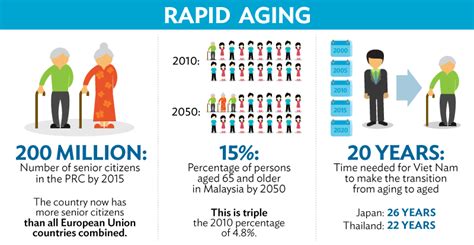Introduction
Globally, the population of individuals aged 65 and over is projected to double by 2050, reaching approximately 2.1 billion people. This unprecedented demographic shift presents both significant challenges and remarkable opportunities for societies around the world. By harnessing the economic potential of older adults, we can not only improve their well-being but also fuel economic growth, innovation, and societal progress.

The Importance of Senior Capitalization
Senior capitalization refers to the process of recognizing and leveraging the economic contributions of older adults. This includes their:
- Extensive knowledge and experience: Seniors have accumulated a wealth of knowledge and skills throughout their careers and personal experiences. They possess specialized expertise that can be invaluable in various sectors.
- Financial assets and investments: Seniors often have substantial financial assets and investments that can be utilized to support entrepreneurship, innovation, and economic development.
- Time and availability: Retirees have more free time available than younger generations, making them valuable resources for volunteering, mentorship, and other community-based activities.
Benefits of Senior Capitalization
Harnessing the economic potential of older adults provides numerous benefits for individuals, businesses, and economies as a whole:
- Increased economic growth: Seniors can drive economic growth by starting businesses, investing in startups, and supporting local economies.
- Innovation and productivity: Their knowledge, experience, and networks can foster innovation and enhance productivity in various industries.
- Reduced healthcare costs: By engaging older adults in meaningful activities, we can promote their physical and mental well-being, potentially reducing healthcare costs.
- Reduced caregiver burden: Supporting older adults to remain active and engaged can alleviate the burden on family caregivers and long-term care systems.
- Improved social cohesion: Intergenerational interactions promote social cohesion and reduce ageism.
Strategies for Senior Capitalization
Effectively capitalizing on the economic potential of older adults requires implementing comprehensive strategies:
- Promote entrepreneurship and innovation: Provide financial support, training, and mentorship programs to older adults interested in starting their own businesses.
- Enhance job market participation: Remove age-based barriers to employment, implement flexible work arrangements, and provide retraining opportunities.
- Foster financial literacy and planning: Educate older adults on financial management, investments, and retirement planning.
- Develop age-friendly environments: Design communities and public spaces that are accessible and inclusive for all generations.
- Support lifelong learning: Create opportunities for older adults to continue their education and acquire new skills.
Common Mistakes to Avoid
When implementing senior capitalization initiatives, it is essential to avoid common pitfalls:
- Ageism: Avoid stereotyping or discriminating against older adults based on their age.
- Paternalism: Respect the autonomy of seniors and their ability to make their own decisions.
- Underestimation: Do not underestimate the economic contributions and potential of older adults.
- Lack of diversity: Ensure that senior capitalization strategies are inclusive of all older adults, regardless of their background, income, or education level.
- Short-term focus: Invest in long-term initiatives that sustain the economic potential of older adults.
Case Studies
Numerous successful case studies demonstrate the benefits of senior capitalization:
- Senior Corps: The Senior Corps program in the United States provides opportunities for older adults to serve their communities through volunteering. In 2021, Senior Corps volunteers contributed over 110 million hours of service, with an estimated economic value of $3.17 billion.
- AgeWell Innovation Center: This center in Canada supports entrepreneurs and innovators over the age of 50. It has helped launch over 100 age-tech companies, generating significant economic impact.
- National Council on Aging (NCOA): NCOA’s Retired Senior Volunteer Program (RSVP) is the largest volunteer network for adults aged 55 and over in the United States. RSVP volunteers provide over 100 million hours of service annually, contributing to economic and social well-being.
Conclusion
Senior capitalization is an urgent imperative in the face of an aging global population. By recognizing and harnessing the economic potential of older adults, we can unlock economic growth, innovation, and societal progress. By implementing thoughtful strategies and avoiding common pitfalls, we can create age-friendly environments that enable seniors to thrive and contribute to the well-being of all generations.
Appendix
Table 1: Projected Increase in the Population of Older Adults
| Region | Increase from 2020 to 2050 |
|---|---|
| Global | 1.4 billion |
| Asia-Pacific | 860 million |
| Europe | 111 million |
| North America | 74 million |
| Latin America and the Caribbean | 118 million |
| Africa | 161 million |
(Source: United Nations Department of Economic and Social Affairs)
Table 2: Economic Contributions of Older Adults
| Contribution | Amount |
|---|---|
| Labor force participation | 35% of global labor force |
| Entrepreneurship | 24% of businesses started by people over 55 |
| Healthcare savings | Up to $233 billion annually in the United States |
| Income tax revenue | $189 billion annually in the United States |
(Source: World Health Organization, Small Business Administration, National Council on Aging)
Table 3: Effective Strategies for Senior Capitalization
| Strategy | Description |
|---|---|
| Promote entrepreneurship | Provide financial support, training, and mentorship programs to older adults. |
| Enhance job market participation | Remove age-based barriers to employment, implement flexible work arrangements, and provide retraining opportunities. |
| Foster financial literacy | Educate older adults on financial management, investments, and retirement planning. |
| Develop age-friendly environments | Design communities and public spaces that are accessible and inclusive for all generations. |
Table 4: Common Mistakes to Avoid in Senior Capitalization
| Mistake | Description |
|---|---|
| Ageism | Stereotyping or discriminating against older adults based on their age. |
| Paternalism | Respect the autonomy of seniors and their ability to make their own decisions. |
| Underestimation | Do not underestimate the economic contributions and potential of older adults. |
| Lack of diversity | Ensure that senior capitalization strategies are inclusive of all older adults, regardless of their background, income, or education level. |
| Short-term focus | Invest in long-term initiatives that sustain the economic potential of older adults. |
